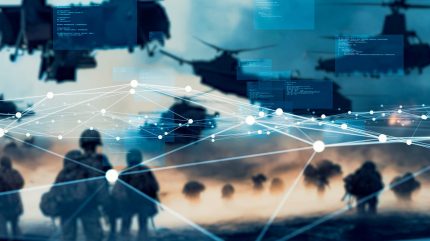Meta-AI: the next step for data quality in military training

Artificial intelligence (AI) is seeping into all defence processes – as in most sectors – wherever specific problems arise.
This includes military training, for which Raytheon UK’s chief technology officer for training transformation services, Alex Smith, predicted that an emerging concept known as metacognition – or as he labelled it, ‘meta-AI’ – will help to ensure quality data.
Smith contemplated the implications of metacognition in a panel discussion on AI during the Defence Simulation, Education, and Training (DSET) conference in Bristol on 9 July 2025.
Metacognition is the process of thinking about one’s own thinking. When applied to AI, the concept can adjust the system’s cognitive processes by allowing the AI agent to learn, adapt, solve problems, and make decisions more effectively.
More broadly in defence, metacognition will impact the so called OODA (observe, orient, decide, act) loop model of decision making, where increasingly complex challenges and dilemmas, such as those being made in command centres where lots of information is processed and senior individuals are pressured to act.
With that, however, comes serious ethical dilemmas surrounding how far AI ought to make life or death decisions.
“Models are actually trained on data, but generated by AI, and they are not always accurate”, observed another member of the panel, Taija Hillier, chief data and AI officer, Mission Decisions UK.
“It [is] clear that newer [AI systems] will be even more reliant on people”, she determined.
However, metacognition provides another layer of autonomous discrimination that goes beyond the scrutiny provided by a human in the loop. For that reason, the emerging concept is crucial for ensuring safety and quality data extraction, particularly when Smith considered generative AI (GenAI) tools in defence training.
“We’ll bring an AI into it, but that meta-AI capability in the future, that’s where I think we’re going to see some real advances and how we better train,” Smith remarked.
Raytheon UK and ScotAI
Smith and his colleagues presented details of existing GenAI tools used to enable Raytheon UK’s military training and simulation offerings.
Recently, the company started working with a start-up called ScotAI to deliver an on-premises, offline AI solution that could operate securely in air-gapped environments, isolated from external networks for training Royal Navy personnel.
Likewise, there is also the retrieval augmented generation (RAG) system which augments the knowledge of a large language model and uses information from the input document set.
“It augments [data] into a human friendly answer with the references in the document as to where that information is coming from,” said Dr Katie Yates, head of data science and machine learning, Raytheon UK.
“So again, that human in the loop, that ability to point back to the document and say, ‘this is where that information is coming from, and I can validate that’ is super important for us.”


